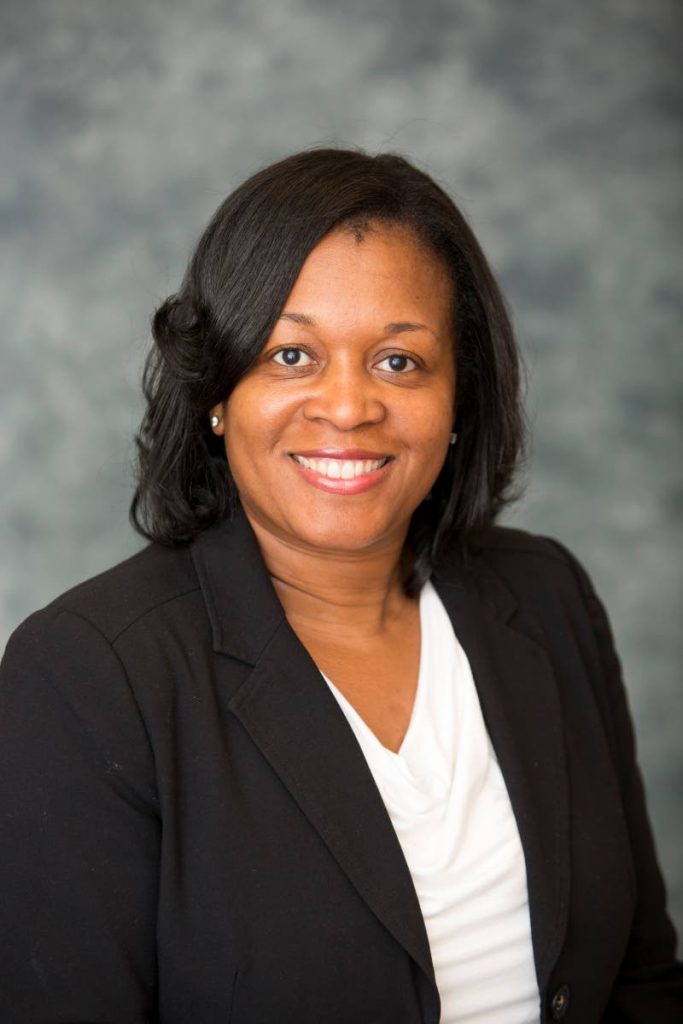Black women at high risk for breast cancer

Black women are more likely to die of breast cancer than women of any other ethnic group.
This according to Dr Phyllis Morgan, one of the co-ordinators for the family nurse practitioner specialisation at Walden University. Morgan has participated in research focussed on cancer issues among African-Americans and in 2002 wrote her dissertation on African-American women and breast cancer.
Sunday Newsday spoke with Morgan, in observance of October as breast cancer awareness month.
Breast cancer, she observed, was the second leading cause of death among women in the US but the mortality rate was much higher in African-American women.
She said several factors linked to the higher mortality rate, including higher body mass index (BMI) among black women, a delay in seeking treatment, and more aggressive forms of cancers.
She said higher BMIs were linked to cancer because of diets high in saturated fats.
“Some of the prevention things go back to a healthy diet – one that has high fibre, low in saturated fats – exercise is key, keeping the body in shape, keeping the weight down, stress reduction because there has been some discussion about cortisol levels and HPC (hippocampus) and someone’s risk for certain diseases like cancer.”
Also, some women delay treatment for various reasons. This could include a lack of health insurance, a lack of finances for treatment and even avoidance because of religious beliefs.
According to Morgan, many black women were diagnosed with triple negative breast cancer (TNBC). The Breastcancer.org website says in TNBC breast cancer cells tested negative for oestrogen receptors, progesterone receptors, and HER2. This means, “The growth of the cancer was not supported by the hormones oestrogen and progesterone, nor by the presence of too many HER2 receptors. Therefore, triple-negative breast cancer does not respond to hormonal therapy... or therapies that target HER2 receptors.”
She said, “Triple negative cancer really has to be caught early. If not, the survival rate for TNBC is low.” However, research was still being conducted to find out why black women get more aggressive breast cancer than women of other ethnic groups.
Morgan noted that breast, prostate, lung, colon are the most common cancers in TT, the Caribbean and the US. However, TT had one of the region’s highest cancer mortality rates in the Caribbean and the Americas. Caribbean men also have the highest prostate cancer mortality rate in the world.
She said it was important to educate women about breast cancer and how to prevent and detect it. She recommended that women have an annual breast exam by their health professional, who should then teach their patients how to perform a breast self-examination. Women should then perform that examination at least once a month, three to five days after the start of their period.
However, she said many women did not examine themselves for a variety of reasons. She said some might not know how to perform one or were unsure about what they were feeling. Others might not be comfortable touching their body for cultural reasons and so felt guilty to perform one.
“It’s about educating, it’s about, maybe, providing some sort of breast model so that they can touch the breast to feel the tissues to feel what normal and abnormal is, what they should be feeling for to be able to distinguish normal breast tissue, abnormal breast tissue, or a lump.”
She stressed the importance of culturally-appropriate information distributed through the media, church-based programmes, internet searches at reputable websites and any other effective means.

Comments
"Black women at high risk for breast cancer"